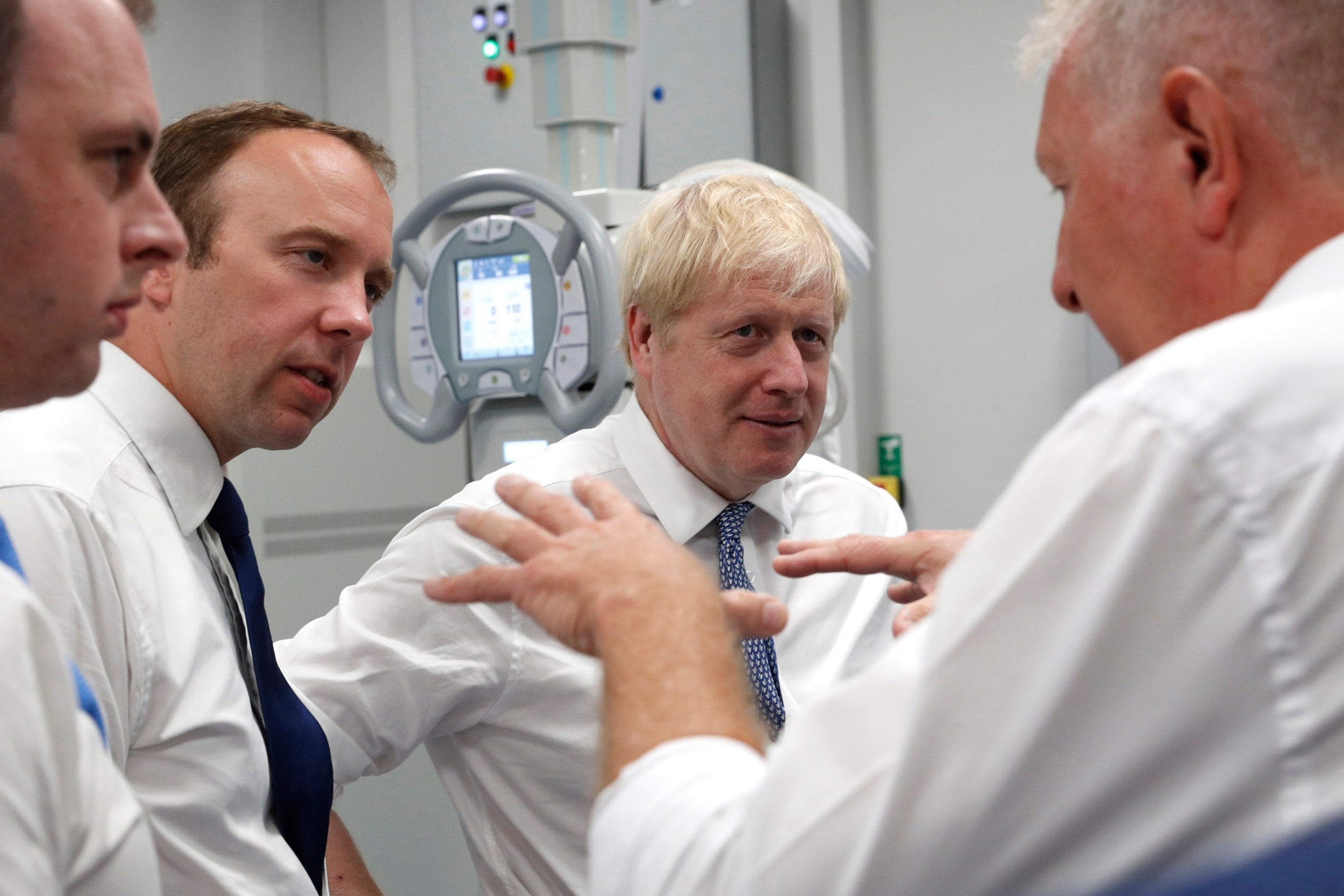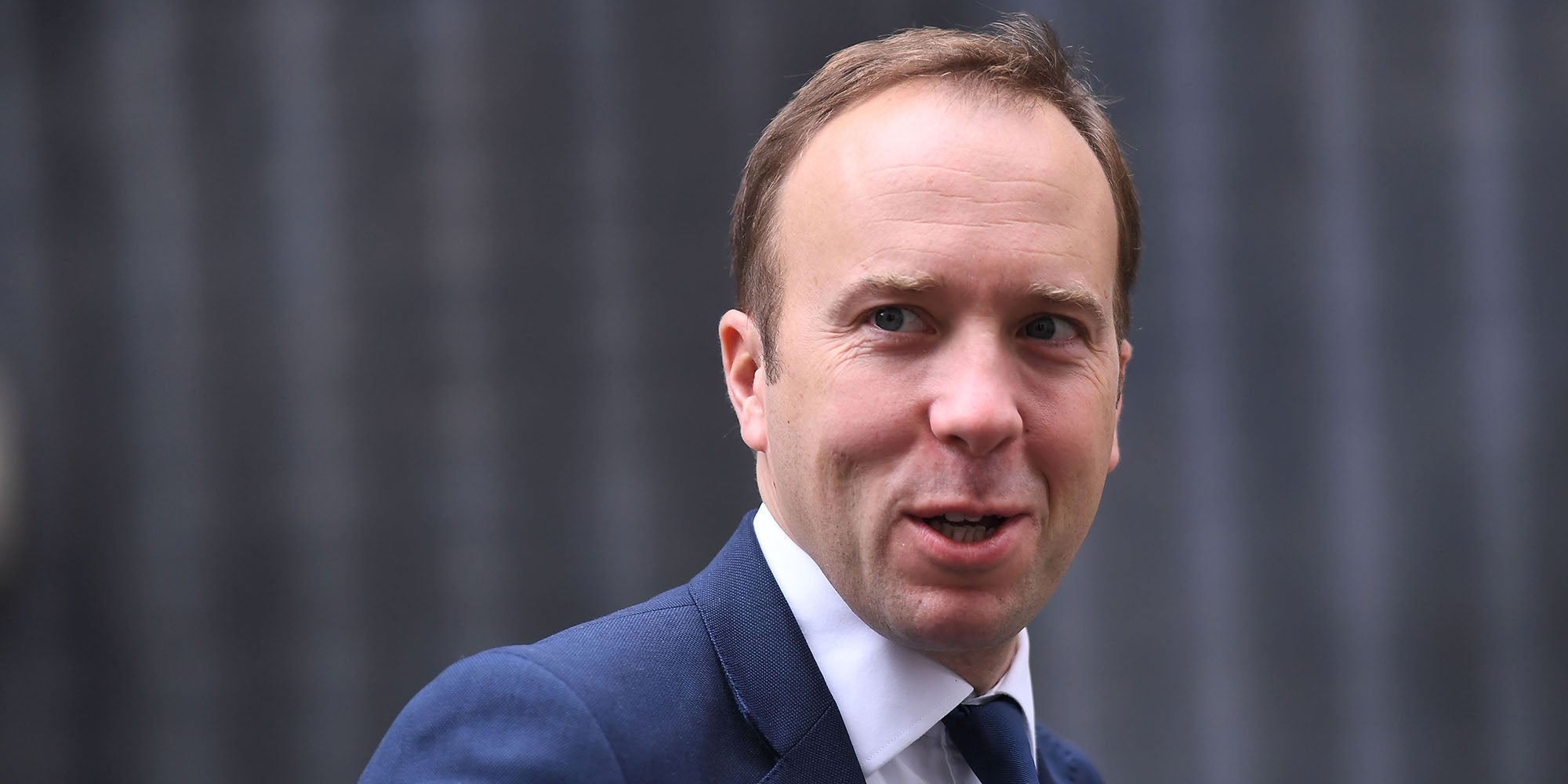General election: NHS crisis threatens to derail Boris Johnson’s campaign as ‘bleak winter’ looms
One in four patients in major A&Es wait more than four hours, new figures show

Your support helps us to tell the story
From reproductive rights to climate change to Big Tech, The Independent is on the ground when the story is developing. Whether it's investigating the financials of Elon Musk's pro-Trump PAC or producing our latest documentary, 'The A Word', which shines a light on the American women fighting for reproductive rights, we know how important it is to parse out the facts from the messaging.
At such a critical moment in US history, we need reporters on the ground. Your donation allows us to keep sending journalists to speak to both sides of the story.
The Independent is trusted by Americans across the entire political spectrum. And unlike many other quality news outlets, we choose not to lock Americans out of our reporting and analysis with paywalls. We believe quality journalism should be available to everyone, paid for by those who can afford it.
Your support makes all the difference.A crisis in the NHS is threatening to derail Boris Johnson’s drive for Downing Street, as performance in NHS emergency departments has hit its worst-ever low point.
New data from NHS England showed that one in four patients at major A&Es (25 per cent) waited longer than four hours to be seen or treated in October. Taking in smaller emergency departments, just 84 per cent were treated or admitted within four hours – well below a 95 per cent target which has not been achieved since 2015.
A respected health think tank warned that England was heading for “one of the bleakest winters in the NHS’s history”.
The figures were published as polling revealed that health is vying with Brexit as Britons’ most significant concern when deciding on how to vote in the general election. Some 54 per cent named healthcare as a “very important” election issue in an Ipsos Mori poll, against 55 per cent for the EU and Brexit.
Labour accused Conservatives of being “staggeringly out of touch” after Matt Hancock, the health secretary, insisted that the NHS was in many ways “performing better than it ever has”.
More than 720 patients waited over 12 hours for a bed in October, one of the worst performances for the health service as emergency departments saw record levels of attendances.
Katherine Henderson, president of the Royal College of Emergency Medicine, said: “The worst part of this is that winter is only just beginning. This will almost certainly get worse.”
She said the performance figures were a new low for the NHS and should be “a source of shame for politicians of all stripes”.
“Patients have been let down repeatedly by a parliament that has consistently failed to grasp the scale of the problem,” she said.
“Our staff are stretched beyond their limits.”
Official figures also showed a record high 4.42 million patients on the waiting list for treatment – with long waits for cancer care and operations such as hip replacements.
Mr Hancock pointed to the rising number of patients requiring treatment and said the number of operations done had actually risen by 7 per cent over the last 12 months.
“In many ways, the NHS is performing better than it ever has,” he told BBC Radio 4’s The World at One. “The challenge is that demand is increasing as well
“The performance of the system is incredible. The people who are working in the NHS are doing a remarkable job.
“We are putting record amounts of funding in over the next four years. We have got record numbers of doctors and nurses, with more to come.”
But Jonathan Ashworth, the shadow health secretary, denounced the comments as “staggeringly out of touch”.
“Matt Hancock is clueless about the levels of pain and misery he and his Tory cuts have caused patients,” said Mr Ashworth.
“He insists ‘in many ways the NHS is performing better than it ever has’ on the day it’s confirmed the NHS A&E performance is the worst ever.
“This shows the Tories simply don’t care about our NHS.”
Labour leader Jeremy Corbyn said it was “disgraceful” the four-hour A&E target was not being met.
And Luciana Berger, the Liberal Democrat health spokesperson, described it as a “damning indictment of the Conservatives’ dismal record on the NHS”.
But the prime minister – who has made a point of being filmed on hospital visits during his election campaign – said only the Tories could be trusted to deliver the “strong, dynamic economy” needed to ensure rises in the NHS budget.
Dave Prentis, the general secretary of public sector union Unison, said: “Years of underfunding and an endless staffing crisis show the Conservatives are simply not fit to run our NHS.
“These are the worst ever A&E figures yet the winter has barely begun. It’s a shocking state of affairs and should be of huge concern to every one of us.”
NHS England figures for October showed that a total of 2.17 million patients attended A&E last month, 4.4 per cent up on October 2018.
There were 563,079 emergency admissions to hospital in October, 3.1 per cent more than a year earlier with more than 80,000 patients waiting over four hours after it was decided they needed a bed.

In terms of waiting times for operations, 84.8 per cent of patients were waiting less than 18 weeks before treatment in September 2019, meaning the NHS has again missed its target of 92 per cent.
The 4.4 million total of patients waiting was up 5.7 per cent on September 2018.
The new data also reveals the effect on patients waiting to leave hospital with a daily average of 4,979 beds occupied by waiting patients in September 2019.
The main reason for delays in September was for patients waiting to have a care package set up in their own home which accounted for more than one in five delays. Almost 50 per cent of these delays were due to social care, 30 per cent were the fault of the NHS with 20 per cent blamed on both sectors.
Professor John Appleby, chief economist at the Nuffield Trust think tank said: “These figures show the next government will immediately be faced with one of the bleakest winters in the NHS’s history.
“We have many months to go until seasonal pressures really hit the NHS, but October has already seen an unprecedented slump with performance against the main A&E target worse than ever. The health service is seeing far more patients, yet one in six is now waiting more than four hours in A&E. If the usual trends continue after Christmas, that would head towards one in five.”
He said the number of patients waiting on trolleys because of a lack of beds was a major concern, adding: “If this trend keeps going, I fear we could see 100,000 people stuck on trolleys this coming January.
“These are not acceptable waits, both for people who need urgent help and for the staff who desperately want to treat them. As the election promises roll in, we should be under no illusion about the money, staff and time it will take to turn this situation around.”
Richard Murray, chief executive of the King’s Fund charity, said: “Amidst the political rhetoric of the general election campaign, today’s statistics lay bare the stark reality for patients across the country who are struggling to access NHS hospital services.”
In March, NHS England announced proposals to scrap the key targets for patients to be seen in A&E within four hours, or to receive an operation within 18 weeks.
Instead, figures would be published on how long patients spend on average in A&E and the 18-week target would be replaced by an average marker of the time it takes to start treatment.
A spokesperson for NHS England said: “These figures show that while NHS staff are looking after a markedly higher number of older and sicker patients, a higher number of patients are being seen quickly than a year ago.
“While hospitals will be opening more beds over the coming weeks, the public also have a role to play going into winter, and can help doctors, nurses and other staff by getting their flu jab, and by using the NHS 111 phone or online service as a first port of call for non-emergencies.”
Ipsos Mori interviewed 1,140 British adults between 8 and 11 November
Join our commenting forum
Join thought-provoking conversations, follow other Independent readers and see their replies
Comments